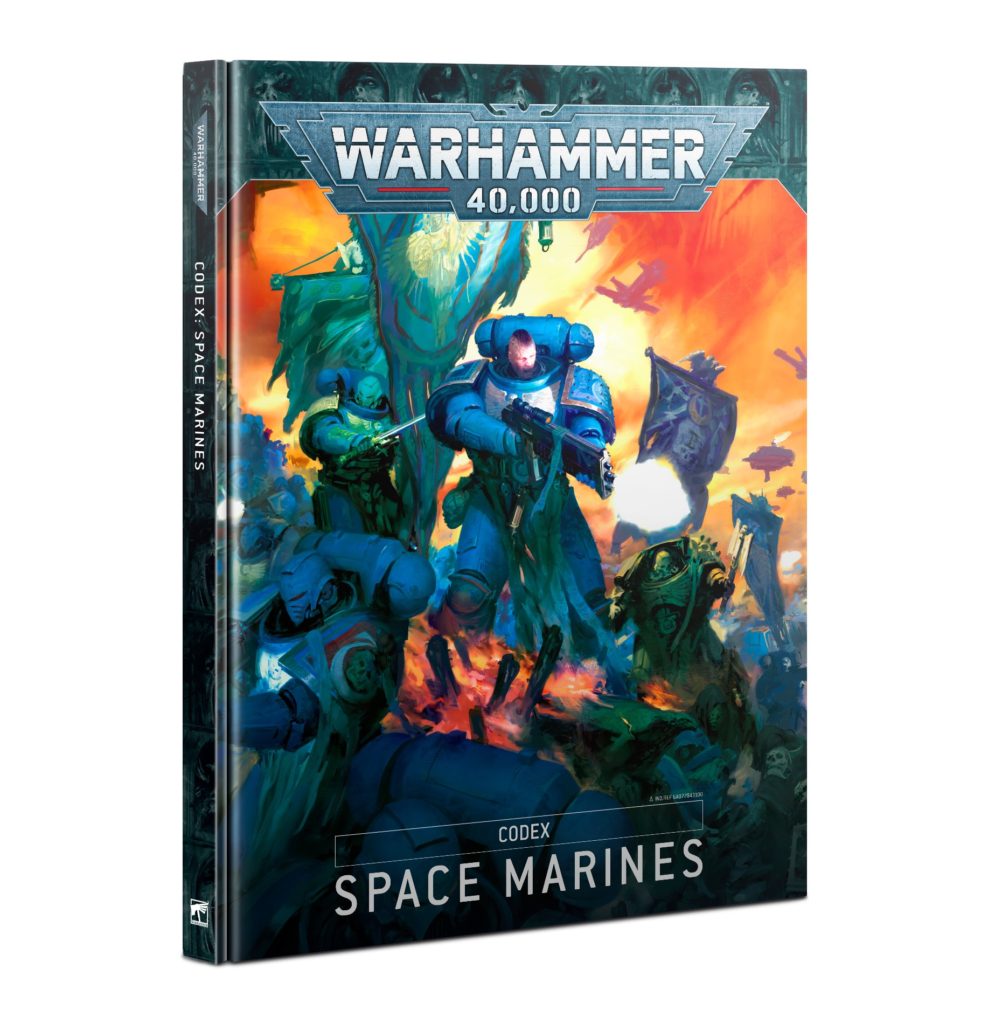As I continue playing catch up on my crusade reviews I figured I would segue into the Space Marines next. This book released near the Necron books and shows some of the same limitations. These early books have a very different feel from the intense rules of the later crusade rules and so I am curious to see what that entails for the “good guys” of the 40k universe.
Army Special Rules:
Like the Necron codex the Space Marines have a very milquetoast mechanic, though it’s an improved version. After you level up a character you can give them an honorific if that character is a space marine captain. This represents their promotion to certain responsibilities in the chapter. Whereas you can stack these abilities for the Necrons the Space Marines are locked into one each. The options are decent and give you a lot of flexibility, One gives you the ability to put more units into reserves, another gives you more CP if you are the defender (good for narrative games with set defenders) one of the sneakiest ones is Chief Victualler which allows you to use the Rearm and Resupply Requisition for free on friendly chapter units. This gives you a lot of opportunities to tailor your load-out to your opponent. Master of the Fleet is also a fluffy option for naval chapters and makes orbital bombardments actually worth considering.
Battle Traits
Most of these options are pretty bad, the Machine-Spirit table can be fun to build a beast of a Landraider (that hits on 3+ in close combat) they honestly pair well with some of the super heavy options in the forgeworld index. The Apothecary and Techmarine tables are mediocre usually encouraging you to do things with these support characters that you shouldn’t be doing. The Adeptus Astartes table is broadly good with a variety of options that are worth considering (lots of options to increase your BS or WS +1) Centulos Service Studs are an auto-include letting the unit pick what doctrine they want to be active each turn (for that unit).
Relics:
All the Artificer Relics are decently useful with options for 4++ and a 4+++ on mortals, Free Teleport Strike or extra wounds and toughness. It’s rare to see so many options available at this low a level and so you will want to have your characters stock up on these. The Antiquity Relics are slightly less useful, the blade is decent and the standard is nice just very situational. If you play a lot of infantry it is worth it, otherwise less so. The Legendary Relics are pretty bad. The Vortex Bolts give you a nice mortal wound hit but only once per game. The Relic is great for triggering a big swing but also incentivizes you to get the model bearing it killed (sure it can lose you the game, but it can also net a juicy free 3 exp). So take the Artificer Relics then start looking elsewhere for your Legendary relics.
Agendas and Requisitions:
Fortunately, the Astartes have some really good agendas. Know no Fear is great as you technically test even if you cannot fail and each successful test gets you 2 exp (until you fail). This is a great way to get a lot of exp very fast….unless you play against Dark Eldar, especially as their relic can make you auto-fail. Quest for Atonement is great way to get rid of battle scars on important units plus a big boost of exp. Honour the Standard is very thematic and is a great way to get a lot of experience for drop-pod heavy lists. The Last option, Recover Geneseed is good if you want to buff up an apothecary quickly but isn’t as good as your other options.
For requisitions, one option allows you to build a dreadnought which is fun, all you need is a character with two battle scars. I like this requisition a lot as it allows you to really embrace the narrative side of the crusade system. If you want to get any chapter command units you have to wait until they gain a lot of exp and then use the Chapter Command requisition to promote them. The Primaris get their “Equal Attention Cake” by getting the ability to start with 6 exp when added to a roster. The Rubicon Primaris is basically the same thing as the dreadnought but just for old-marines to become nu-marines. And sadly that’s it for requisitions.
Final Thoughts:
I came to this article ready to complain about how the Space Marines have the weakest crusade rules but now I am not quite so sure. Right off the bat, they have a way to level non-vehicle units up quickly and have some of the best basic level relics. I think they start to drop off quickly once you hit the mid-tier of a campaign when other armies begin to reap the benefit of their army-specific rules. One of the biggest challenges they present is how should people running a campaign incorporate these rules for successor chapters. Do successor chapters get access to both sets of rules or just the sub-chapter crusade abilities? This is something I will tackle in a future article but it has some interesting snags to consider.
And remember, Frontline Gaming sells gaming products at a discount, every day in their webcart!

